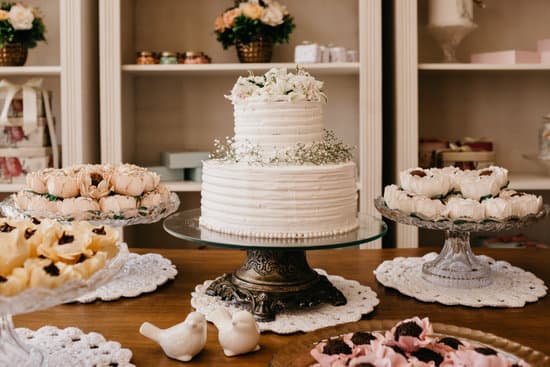Planning a wedding is an exciting and significant milestone for couples, but it can also be a daunting task that requires careful organization and decision-making. The question of how soon should you start planning your wedding is crucial in ensuring a smooth and stress-free process. Proper planning is essential for creating the perfect day, and starting early can make all the difference in the overall experience for everyone involved.
Whether it’s setting the date, establishing a budget, choosing the venue, or finalizing details, each aspect of wedding planning requires careful consideration and time. Starting early allows for ample time to explore options, compare prices, and make decisions without feeling rushed or pressured. With this in mind, it’s important to understand the significance of early planning to ensure that everything falls into place seamlessly.
From setting the date to finalizing details for the big day, each step of the planning process plays a vital role in creating a memorable wedding experience. To kick off this journey on the right foot, it is crucial to discuss the importance of proper planning for a wedding and highlight why starting early is key. By understanding these fundamental elements, couples can navigate through their wedding planning journey with confidence and ease.
Setting the Date
Choosing the perfect date for your wedding is a crucial step in the planning process. The date you select can impact every aspect of your wedding, from the availability of vendors and venues to the overall timeline for planning. This is why it’s essential to start this process early and consider all factors that may influence your decision.
One key factor to consider when setting the date for your wedding is the availability of your desired venue. Popular venues can get booked up months or even years in advance, so it’s important to start researching and contacting potential locations as soon as possible. By securing your venue early, you can ensure that you have a date that works for both you and the location of your dreams.
In addition to venue availability, choosing a date early on in the planning process allows you to coordinate with important guests such as immediate family members and close friends. By giving them plenty of notice, you increase the chances of having all your loved ones present on your special day. So, how soon should you start planning your wedding? As soon as possible, especially if you have a specific date or time of year in mind.
| Key Factors to Consider | Importance |
|---|---|
| Venue Availability | Book popular venues in advance |
| Guest Coordination | Giving guests plenty of notice |
Budgeting
When it comes to planning a wedding, setting a budget early on is crucial in shaping the overall planning process. Without a clear understanding of how much you can afford to spend, it becomes difficult to make decisions about the various aspects of your big day.
From the venue to the dress, every choice will be impacted by the budget you set. This is why it’s important to start thinking about your budget as soon as you begin the wedding planning process.
Understanding Your Financial Situation
Before diving into any wedding planning, it’s essential to sit down with your partner and get a clear picture of your financial situation. This involves taking stock of your current savings, income, and any contributions or financial support from family members. Understanding how much you have available to spend will give you a realistic starting point for setting your budget.
Setting Priorities and Allocating Funds
Once you have a clear understanding of your financial situation, it’s time to prioritize what aspects of the wedding are most important to you. Whether it’s the venue, entertainment, or the food and drinks, allocating funds based on your priorities will ensure that you’re getting the most out of your budget. Setting these priorities early on will help guide all other decisions throughout the planning process.
Staying Flexible and Making Adjustments
While setting a budget early on is important, it’s also crucial to remain flexible and be prepared to make adjustments as necessary. As you start exploring different options for venues, vendors, and services, you may need to reevaluate how funds are allocated. Being willing to make adjustments along the way can help ensure that you stay within your means while still achieving the wedding of your dreams.
Venue Selection
When it comes to planning your wedding, one of the most important decisions you’ll have to make is choosing the perfect venue. The venue sets the tone for the entire event and can impact many other aspects of your wedding planning timeline. This is why it’s crucial to start looking for a venue as soon as possible.
The first step in selecting a venue is to consider your budget and guest list. This will help you narrow down your options and ensure that you find a space that can comfortably accommodate all of your guests within your budget. Once you have an idea of the size and style of venue you’re looking for, it’s time to start researching and visiting potential locations.
It’s important to keep in mind that popular venues book up quickly, especially during peak wedding season. This is why starting your search early is essential.
By starting the process of selecting a venue sooner rather than later, you’ll have more options available to you, and you’ll be able to secure a date that works for both you and the venue. Ultimately, finding the perfect location for your special day takes time and careful consideration, so it’s best not to rush this decision.
Guest List and Invitations
When it comes to planning a wedding, one of the most crucial steps is creating the guest list and sending out invitations. This process can often be more time-consuming than anticipated, which is why it’s essential to start early.
Here are some reasons why starting early with the guest list and invitations is important:
1. Prioritizing Your VIPs: Starting early allows you to take the time to carefully consider who you want to invite to your special day. You can prioritize your VIP guests, such as close family members and friends, and ensure that they make it onto the list.
2. Securing RSVPs: Sending out invitations early gives your guests ample time to RSVP, especially if they need to make travel arrangements or take time off work. This will help you get a more accurate headcount for your event.
3. Managing Budget and Venue Selection: Having an idea of how many guests you plan to invite will also impact your budget and venue selection. A larger guest list may require a bigger venue and a higher budget, so starting early allows you to make these decisions with confidence.
Furthermore, sending out save-the-date cards well in advance can ensure that your guests have enough notice for your big day, particularly if you are planning a destination wedding or getting married during peak travel seasons. Ultimately, starting early with the guest list and invitations sets the tone for the rest of your wedding planning process.
It allows you to stay organized and focused on other aspects of your special day while ensuring that all your loved ones are included in this joyous celebration.
Vendors and Services
When it comes to planning your wedding, one of the most crucial aspects is securing vendors and services for the big day. From photographers and florists to caterers and entertainment, booking these professionals in advance is essential to ensure their availability and secure your desired options. Here are a few key points to consider when it comes to securing vendors and services for your wedding:
- Research: Start by researching different vendors and services in your area. Look for recommendations from friends and family, read reviews online, and attend wedding fairs or showcases to meet potential vendors in person.
- Prioritize: Once you have an idea of the type of vendors you’ll need for your wedding, prioritize those that are most important to you. For example, if photography is a top priority, start looking for photographers early on in the planning process.
- Communication: Reach out to potential vendors as soon as possible to inquire about their availability for your wedding date. This will give you a better idea of who is able to accommodate your event and allow you to compare pricing and packages.
Booking vendors and services well in advance not only ensures that you have a wide selection to choose from but also gives you peace of mind knowing that key elements of your wedding day are secured. By taking the time to research, prioritize, and communicate with potential vendors early on, you can rest assured that your dream team will be in place for your special day.
Dress and Attire
When it comes to planning a wedding, one of the most exciting aspects for many brides is choosing their wedding attire. Whether it’s a traditional white gown, a sleek jumpsuit, or a colorful cocktail dress, finding the perfect outfit is key to feeling confident and beautiful on your big day. But the question remains: when is the right time to start shopping for the perfect dress?
The answer to “how soon should you start planning your wedding” varies for each bride, but experts recommend beginning the dress shopping process about 9-12 months before the wedding date. This timeline allows for ample time to browse different styles, visit bridal salons, and schedule fittings. Keep in mind that some dresses may need to be ordered several months in advance and alterations can take additional time, so starting early is crucial.
It’s also important to consider factors such as seasonality and any specific design elements you have in mind for your dress. If you’re getting married during peak wedding season (typically spring and summer), it’s wise to begin shopping even earlier due to higher demand at bridal boutiques. Additionally, if you have a particular style or designer in mind, their availability and lead times will impact when you should start the search for your dream dress.
Finally: remember that choosing the perfect wedding attire includes more than just the bride’s gown; grooms, bridesmaids, groomsmen, and other members of the wedding party should also plan ahead for their outfits. Keeping everyone on track with timelines and appointments will help ensure that everyone looks coordinated and polished on the big day.
| Reasons | Timeline |
|---|---|
| Browsing styles & visiting salons | 9-12 months before |
| Ordering & alterations | Several months in advance |
| Seasonal demand & designer availability | Vary depending on circumstances |
Finalizing the Details
Choosing the Right Vendors and Services
When it comes to finalizing the details for your wedding, one of the most important aspects is booking the right vendors and services. This includes everything from the photographer and videographer to the florist, caterer, and entertainment. It’s essential to start researching and meeting with potential vendors early on to ensure that they are available on your chosen wedding date.
Keep in mind that popular vendors often get booked up quickly, so starting this process early is crucial. By finalizing these details sooner rather than later, you’ll alleviate a significant source of stress as your big day approaches.
Creating a Detailed Timeline
Finalizing all the details for your wedding also involves creating a detailed timeline for the day itself. This includes everything from when hair and makeup will be done to when photos will be taken, when guests will arrive, when the ceremony will begin, and how the reception will unfold.
Having a clear timeline ensures that everyone involved in your wedding – from the bridal party to vendors – knows exactly what is expected of them and when. Starting early on this aspect of planning allows for flexibility and adjustments as needed, ultimately leading to a smoother and more organized wedding day.
Staying Organized Throughout the Process
As you finalize all the details for your wedding, it’s crucial to stay organized throughout the entire planning process. This involves keeping track of contracts, receipts, timelines, seating charts, and any other pertinent information related to your big day.
Starting early with this organizational aspect of wedding planning not only keeps you on top of everything but also allows you to make any necessary changes or adjustments well in advance. This level of organization contributes to a less stressful lead-up to your wedding day and ensures that no detail gets overlooked or forgotten amidst all the excitement.
Conclusion
In conclusion, the process of planning a wedding can be overwhelming, but starting early can make a significant difference in how smoothly everything comes together. By setting the date and budget early on, couples can establish a solid foundation for the rest of their planning journey.
It is crucial to have a clear timeline for each aspect of the wedding, from venue selection to finalizing details, to ensure that nothing gets overlooked or rushed at the last minute. By taking proactive steps and staying organized, couples can avoid unnecessary stress and truly enjoy the process leading up to their special day.
When it comes to setting the date, potential roadblocks like venue availability and conflicting schedules with important guests should be taken into account. On the budgeting front, being realistic about financial constraints will help prioritize spending without sacrificing essential elements of the celebration. Moreover, beginning earlier with guest lists and invitations allows couples to plan more effectively and give guests ample notice to mark their calendars.
Throughout this journey, it’s important for couples to communicate openly with each other and lean on their support network when needed. Whether it’s seeking out advice from married friends or enlisting the help of family members in decision-making processes, having support can make all the difference. Overall, regardless of how soon one begins planning a wedding, patience and flexibility are key attributes that will serve couples well as they navigate through this joyous yet complex experience.
Frequently Asked Questions
How Far in Advance Should You Start Planning Wedding?
The ideal time to start planning a wedding is about 12-18 months in advance. This gives you enough time to book vendors, secure your desired venue, and make all necessary arrangements without feeling rushed or stressed.
Is 2 Years Too Early to Plan a Wedding?
Planning a wedding 2 years in advance can actually be quite beneficial. It allows for more flexibility in terms of choosing vendors and venues, as well as securing the best rates. However, it’s important to stay organized and not get overwhelmed by starting too early.
When Should I Start Preparing for My Wedding?
It’s generally recommended to start preparing for your wedding around 12-18 months before the big day. This gives you ample time to research and book vendors, select a venue, and start on other important details without feeling pressured or rushed towards the end.

I have been involved in marriages for over 20 years helping couples and singles understand more about them.





